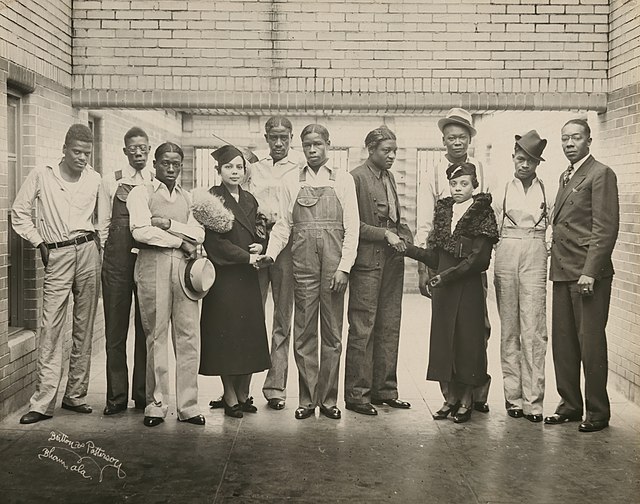
By Stacy M. Brown, NNPA Newswire Senior National Correspondent
Former President Donald Trump, known for his gaslighting statements and actions to fuel the fire of racism, drew criticism from a federal judge for invoking the 1931 Scottsboro Boys case in a bid to delay his upcoming election interference trial. Trump’s legal team cited the landmark Supreme Court decision related to the Scottsboro case, arguing that special counsel Jack Smith wasn’t allowing sufficient time for trial preparation.
U.S. District Judge Tanya Chutkan swiftly rejected the comparison and scheduled Trump’s trial for March 2024, one day before Super Tuesday. The judge emphasized that the case’s timeline did not reflect undue haste and pointed out Trump’s access to a capable legal team and ample resources for a thorough defense.
Trump currently faces four charges in the election interference case, including conspiring to defraud the United States and obstructing an official proceeding—charges previously filed against those involved in the January 6, 2021, Capitol breach. He has pleaded not guilty.
The 2024 GOP presidential frontrunner currently faces 91 felony charges in four jurisdictions – New York, Washington, Florida, and Georgia – most related to related to his loss to Joe Biden in 2020. If convicted on all counts, Trump could receive a more than 800-year prison sentence. Due to the complexity of the election interference case in Washington, John Lauro, Trump’s attorney, expressed concern that the trial date would compromise the former president’s right to effective legal counsel.
But Chutkan scolded the lawyers, and the twice impeached, four-times indicted Trump, whom earlier this year a civil jury found liable for sexual assault. She cited the Supreme Court’s Scottsboro Boys ruling at the time, saying, “The court noted that a sizable crowd greeted the defendants at Scottsboro after their arrest and that the community’s attitude was one of great hostility. The defendants’ trials began six days after indictment. The Supreme Court found that there was a clear denial of due process because the trial court failed to give the defendants reasonable time and opportunity to secure counsel, and the defendants were incapable of adequately making their own defense.”
Chutkan continued: “Trump is represented by a team of zealous, experienced attorneys and has the resources necessary to efficiently review the discovery and investigate. I have seen many cases unduly delayed because a defendant lacks adequate representation or cannot properly review discovery because they are detained. That is not the case here.”
The Scottsboro Boys rape cases represent the dark racist part of American history where nine Black youths were falsely accused of raping two white women in 1931 while traveling on a train near Scottsboro, Alabama. The accusations led to trials with all-white juries.
Clarence Norris, Charlie Weems, Haywood Patterson, Olen Montgomery, Ozie Powell, Willie Roberson, Eugene Williams, and Andy Wright were all tried, convicted, and sentenced to death. Another defendant, Roy Wright, saw his trial end in a mistrial when some jurors held out for a death sentence even though the prosecution asked for life imprisonment. Over the years, appeals and retrials took place, eventually leading to the 1932 Supreme Court ruling in Powell v. Alabama, which stressed the importance of granting defendants sufficient time for legal counsel and trial preparation. This ruling and the 1935 Supreme Court case Norris v. Alabama played a crucial role in advancing the cause of racially diverse juries.
Alabama eventually dropped rape charges against five of the Scottsboro Boys, and Norris, one of the accused, received a posthumous pardon from Gov. George Wallace in 1976. In 2013, the Alabama Board of Pardons and Paroles issued posthumous pardons to the three Scottsboro Boys who had not previously received or had their convictions overturned.
“It was stunningly stupid,” retired California Superior Court Judge LaDoris Hazzard Cordell told CNN of Trump invoking the Scottsboro Boys case. “Because one, the comparison is ridiculous. But second, if you want to alienate a judge in the case, this was exactly what to do. A female judge, a Black judge, and to talk about that case and compare it to Trump’s case was absurd.”

